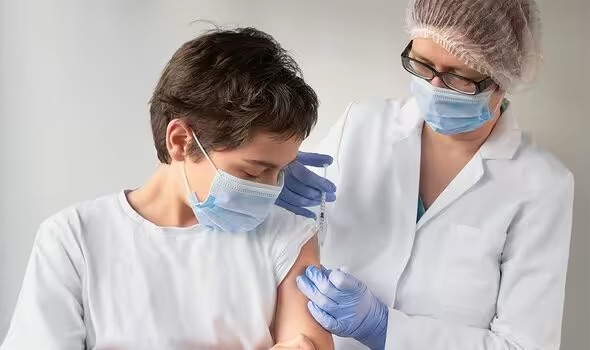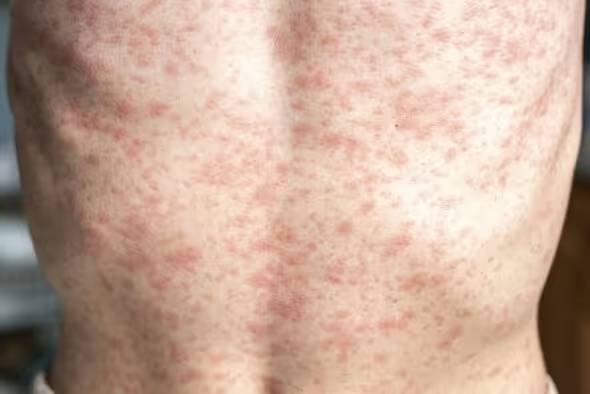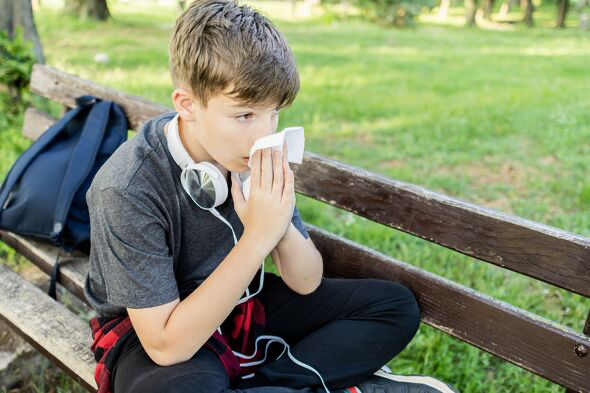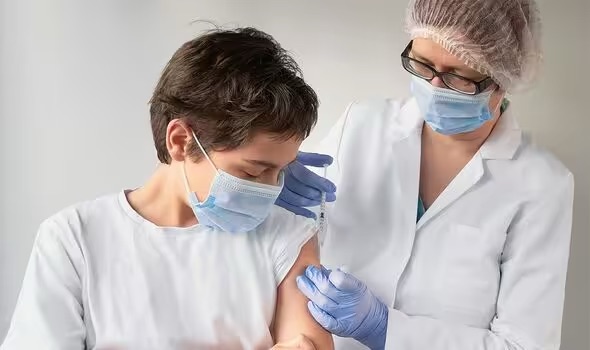Health officials are warning of a sharp rise in a highly contagious illness in the UK, reminiscent of a disease prevalent during the Victorian era. Measles cases have surged, with more than 600 potential new cases reported by GPs in just three weeks, according to the UK Health Security Agency (UKHSA).
Since the outbreak began in Birmingham in early October, there have been 1,749 confirmed cases through laboratory testing. This year alone, there have been 1,531 cases, a figure more than four times higher than last year’s total of 362 cases, marking the largest outbreak in over a decade.

Measles typically begins with symptoms resembling a cold, followed by a distinctive rash appearing after several days. Some individuals may also notice small spots inside their mouths. The disease can progress to severe complications such as pneumonia, meningitis, blindness, seizures, and in some cases, it can be fatal. The UK Health Security Agency (UKHSA) has urged parents to be vigilant, emphasizing that measles can lead to serious health problems, especially in young children and those with weakened immune systems.

The UKHSA advises individuals to contact their GP or NHS 111 initially if they suspect measles in themselves or their child, before visiting a healthcare facility, to minimize virus transmission.
Between May 13 and June 3, GPs in England and Wales reported 627 suspected measles cases to the UKHSA. While these cases are not yet confirmed by laboratory testing, they signal potential infections in local communities and serve as an early warning for potential outbreaks.

In Birmingham, the focal point of the current outbreak, there have been 382 suspected cases reported, with 22 cases recorded just in the past week.
Symptoms:
Measles typically starts with symptoms resembling a severe cold, such as fever, nasal congestion or discharge, sneezing, coughing, and red, irritated eyes.
Additional signs include small white spots inside the mouth and on the inner lips, appearing a few days later and usually lasting for several days.
Following these initial symptoms, a rash usually develops, beginning on the face and behind the ears before spreading to the rest of the body. The rash consists of slightly raised spots that can merge into larger, blotchy areas but typically does not cause itching.
If you have received both doses of the MMR vaccine or have previously had measles, the likelihood of contracting the disease is very low.
The MMR vaccine is highly effective in preventing measles and is routinely administered to all children in the UK. The NHS recommends two doses for lifelong immunity against measles, mumps, and rubella. Vaccinations are available free of charge through the NHS for those unsure of their vaccination status or that of their children.
